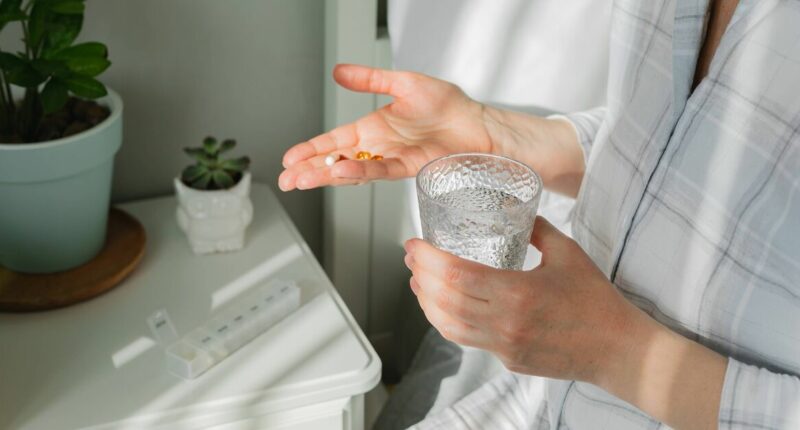Share this @internewscast.com
A recent study by the Health and Food Supplements Information Service (HSIS) reveals that millions in the UK are significantly lacking in vitamin D, a nutrient crucial for strong bones, muscles, and immune function. Published in the Food and Nutrition Sciences Journal, the report titled “Where Are We Up To With Vitamin, Mineral and Omega-3 Polyunsaturated Fatty Acid Gaps?” highlights alarming deficiencies in essential vitamins and minerals across the nation, prompting concern among health experts.
Nutritionist and HSIS researcher Dr. Pamela Mason, who contributed to the research, emphasized the importance of vitamin D: “This vitamin is essential for maintaining healthy bones, teeth, muscles, and immune systems, yet our intake levels are worryingly low. Following NHS guidelines to take a vitamin D supplement, particularly during the sun-scarce months from October to March, is crucial.”
Dr. Mason explained that sunlight is the primary source of vitamin D, as it is produced when the skin is exposed to the sun. The study identified significant gaps in vitamin D consumption among the UK population.
For young children aged one-and-a-half to three years, and those aged four to 10, dietary vitamin D intake was only 19% and 21% of the recommended government levels, respectively. Older children and teenagers aged 11 to 18 also fell short, consuming just 22% of the recommended daily intake, while adults only managed an average intake of 2.6 μg daily, equating to 26% of the recommended nutrient intake (RNI).
Older adults fared slightly better, with those aged 64 to 74 and over 75 consuming 2.9 and 2.8 μg daily, which is 29% and 28% of the RNI, respectively. These insufficient vitamin D levels are also evident in blood tests, with a fifth of the UK population showing low vitamin D levels.
The study also uncovered deficiencies beyond vitamin D, such as inadequate calcium intake in adolescents, and low iron, folate, and iodine levels, particularly in females. Additionally, selenium and potassium intake among individuals aged 11 and older is poor, and the consumption of oily fish, a key source of omega-3, is also low.
‘Huge’ risk associated with deficiency
The risk of vitamin D deficiency for our health, particularly for bone health, is huge, the expert review highlighted.
Dr Mason warned: “In the UK, direct medical costs due to fragility fractures were around £1.8 billion in 2000, potentially increasing to £3.3 billion by 2025, with most of these costs being for hip fracture care. By 2030 the cost of fragility fractures could rise further to £5.89 billion.
“Fractures are devastating for those who suffer, as well as their families and carers. Vitamin D deficiency can also reduce the ability of the body to function physically through muscle weakness and so increase the risk of falls.
“Vitamin D is found in only a few foods – including oily fish, eggs, liver, egg yolk, and full-fat dairy – yet Britons eat just 7–8g of oily fish a day, far below the recommended 140g a week. Such low intakes impact not only vitamin D but also omega-3 fatty acid intake.”
How to optimise vitamin D levels
Dr Mason advised: “Scrutinise your diet and see if you can increase the intake of vitamin D containing foods such as mushrooms, oily fish like salmon, egg yolk, red meat.
“Most importantly take the government-recommended 10 micrograms daily as a supplement either as a single ingredient or in a multivitamin and multimineral supplement including vitamin D. Check labels to be sure you have the correct dose.
“So many of us have limited intakes of vitamin D from food and live indoors so much of our lives that this makes it important to follow this advice. A multivitamin and multimineral supplement containing vitamin D will also help to ensure that other much evident nutritional gaps are bridged. And if you don’t like fish or oily fish, take an omega-3 or fish oil supplement too alongside a multivitamin and multimineral supplement.
“Expose your skin to sunlight, especially in the summer. There are no official recommendations for how long, but for most people, 10 to 30 minutes of unprotected sun exposure to the face, arms, hands, and legs around midday, two to three times a week, is sufficient for vitamin D synthesis. People with light skin need less time (10 to 15 minutes) and those with dark skin (25 to 40 minutes).”












